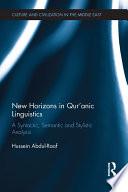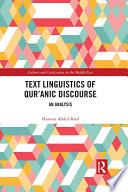
The Formation of Islamic Law
Cover -- Half Title -- Title -- Copyright -- Contents -- Acknowledgements -- General Editor's Preface -- Introduction -- 1. The Arab Conquests and the Formation of Islamic Society -- 2. Pre-Islamic Background and Early Development of Jurisprudence -- 3. Foreign Elements in Ancient Islamic Law -- 4. The Birth-Hour of Muslim Law?: An Essay in Exegesis -- 5. Two Legal Problems Bearing on the Early History of the Qur'ān -- 6. Unconditional Manumission of Slaves in Early Islamic Law: A Ḥadīth Analysis -- 7. The Role of Non-Arab Converts in the Development of Early Islamic Law
- ISBN 10 : STANFORD:36105114382299
- Judul : The Formation of Islamic Law
- Pengarang : Wael B. Hallaq,
- Kategori : Religion
- Penerbit : Routledge
- Bahasa : en
- Tahun : 2004
- Halaman : 417
- Google Book : http://books.google.com/books?id=2SokAQAAIAAJ&dq=intitle:ISLAMIC+LAW&hl=&source=gbs_api
-
Ketersediaan :
The Arab Conquests and the Formation of Islamic Society -- 2. Pre-Islamic Background and Early Development of Jurisprudence -- 3. Foreign Elements in Ancient Islamic Law -- 4. The Birth-Hour of Muslim Law?: An Essay in Exegesis -- 5.









